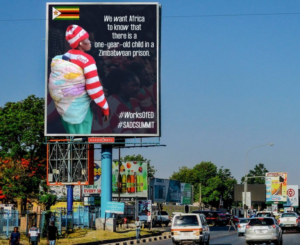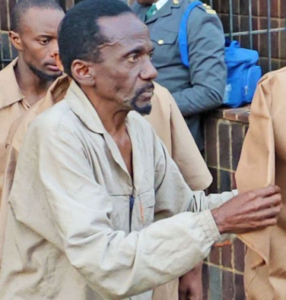ZIMBABWE PARLIAMENT LEADERS CLASH WITH OPPOSITION MP IN HEATED DEBATE

Zimbabwe’s parliament saw a heated exchange recently. Speaker Jacob Mudenda and Zanu PF Chief Whip Pupurai Togarepi confronted Joana Mamombe, an opposition CCC Harare West MP. The clash happened when Mamombe asked about the reinstatement of 23 opposition MPs who had been recalled before. This happened after the Inter Parliamentary Union (IPU) said these MPs should return to their legislative roles.
The IPU is a group that represents national parliaments around the world. In March, the IPU’s Committee on the Human Rights of Parliamentarians criticized the removal of the CCC MPs. The report said that a self-appointed opposition party secretary-general, Sengezo Tshabangu, was behind the recalls. Tshabangu’s actions were supported by Parliament, the judiciary, the executive, state security forces, and other figures. This gave broad support to these controversial recalls.
During the parliamentary session, Mamombe talked about the IPU’s report and its impact on Zimbabwe’s commitment to parliamentary integrity and human rights. But Togarepi quickly interrupted her. He said it was not appropriate to discuss the IPU report again because it had been settled in the parliamentary committee before.
Speaker Mudenda agreed with Togarepi. He said Zimbabwe had already responded during the IPU Assembly and the matter was settled without further debate. This stopped Mamombe from continuing her speech, and she protested that her point was dismissed too quickly.
The IPU’s report in March had strong concerns about how the MPs were recalled. The report said these actions went against the principles of free representation and freedom of expression. The IPU criticized the acceptance of a dubious letter from someone allegedly not connected with the concerned MPs’ party. This letter led to their recall. The report also questioned the speed of the recalls and the lack of debate on this important issue.
The IPU asked for more information from the National Assembly and Senate. This showed there were unresolved issues and a lack of transparency in the recall process. These developments came after a letter from Nelson Chamisa, the former CCC leader, which could have changed Mudenda’s decision. Chamisa’s letter said Tshabangu was an impostor. However, this letter was dismissed because it was received after the recalls, even though it was dated three weeks earlier.
This parliamentary event shows broader issues in Zimbabwe’s political landscape. The independence of the judiciary is being questioned, and civic space is shrinking. This is happening in the context of the disputed 2023 elections and ongoing violations against opposition parliamentarians.
As Zimbabwe navigates these complex political situations, the international community, including bodies like the IPU, watches closely. They comment on the state of human rights and democratic processes in the country. The result of this parliamentary debate and the actions by Zimbabwean authorities will likely have significant effects on the nation’s international standing and internal political stability.




It’s disheartening to see yet another scandal involving high-level corruption in Zimbabwe. Mnangagwa’s inability to decisively handle this issue only highlights the pervasive corruption within his administration. How can the people trust a leader who seems to be controlled by corrupt businessmen?
This incident highlights the undemocratic practices within Zimbabwe’s parliament. The dismissal of Mamombe’s valid concerns and the endorsement of dubious actions by figures like Tshabangu undermine the integrity of the legislative process. It’s disheartening to see the Speaker and the Chief Whip stifle important discussions on human rights and parliamentary integrity.
The lack of transparency in the recall process and the dismissal of Chamisa’s letter are deeply concerning. This whole episode reeks of political maneuvering rather than a commitment to democratic principles. Zimbabwe’s leaders must prioritize transparency and accountability if they want to restore any faith in their political system.